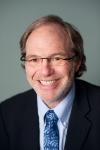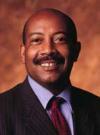Hot Topics: Cool Talk - Should We Have a Regulated System of Incentives for Living Organ Donations?

Arthur Matas, prof. & kidney transplant surgeon (U of M) and Paul Wojda (UST Theo.) will offer medical, ethical, and legal considerations to a regulated system of incentives for living organ donations
Date & Time:
12:30 PM - 1:30 PM
Admission:
Location:
Room 235
University of St. Thomas School of Law
In response to a critical shortage of organs for transplantation a black market for human organs has developed. Could a legal incentive program increase live organ donations while protecting the dignity of the donor? Would such a system stave off the growing trade in organs from the developing world or end up exploiting the poor? What effect might such a system have on altruism and the donor-recipient gift relationship? Join our expert speakers, Arthur Matas, medical director of kidney transplants at the University of Minnesota Medical Center and Paul Wojda, theology professor at the University of St. Thomas, when they discuss the practical and ethical issues raised by a legal system of incentives for living organ donations. Rene Bowser, associate professor and health law specialist at UST School of Law will moderate the program.
 Arthur J. Matas is a professor of surgery and Director of the Renal Transplant Program at the University of Minnesota. He attended medical school in his native Winnipeg, Manitoba, Canada, and completed an internship, a residency, and a Solid Organ Transplant Fellowship, all at the University of Minnesota. He is currently certified by the American Board of Surgery and is a member of the American College of Surgeons, The American Society of Transplantation, the American Society of Transplant Surgeons, the Association for Academic Surgery, the International Society of Transplantation, the Society of University Surgeons, the American Society of Nephrology, and the American Surgical Association. He is Past President of the American Society of Transplant Surgeons. In addition, he is on the Editorial Boards for several transplant-related journals.
Arthur J. Matas is a professor of surgery and Director of the Renal Transplant Program at the University of Minnesota. He attended medical school in his native Winnipeg, Manitoba, Canada, and completed an internship, a residency, and a Solid Organ Transplant Fellowship, all at the University of Minnesota. He is currently certified by the American Board of Surgery and is a member of the American College of Surgeons, The American Society of Transplantation, the American Society of Transplant Surgeons, the Association for Academic Surgery, the International Society of Transplantation, the Society of University Surgeons, the American Society of Nephrology, and the American Surgical Association. He is Past President of the American Society of Transplant Surgeons. In addition, he is on the Editorial Boards for several transplant-related journals.
 Paul Wojda is an associate professor of theology at the University of St. Thomas where he teaches in the area of moral theology, with a special interest in biomedical ethics. Dr. Wojda is a graduate of the University of Notre Dame, where he received a B.A. in Government and Political Theory and holds a Masters degree in religious studies from Yale University Divinity School and a doctorate in moral theology from the University of Notre Dame.
Paul Wojda is an associate professor of theology at the University of St. Thomas where he teaches in the area of moral theology, with a special interest in biomedical ethics. Dr. Wojda is a graduate of the University of Notre Dame, where he received a B.A. in Government and Political Theory and holds a Masters degree in religious studies from Yale University Divinity School and a doctorate in moral theology from the University of Notre Dame.
In addition to his duties at St. Thomas, Dr. Wojda has served as Chair of the Archdiocese Biomedical Ethics Commission, and is a member of the board of directors of the Institute for Basic and Applied Research in Surgery, a non-profit foundation affiliated with the University of Minnesota Medical School. He has served as an ethics consultant to Catholic Health Initiatives, the country’s largest Catholic healthcare provider, as well as on the perinatal bioethics committee of Hennepin County Medical Center. He also served as a member of the National Marrow Donor Center's Institutional Review Board.
 Rene Bowser is an associate professor and health law expert at the University of St. Thomas School of Law. He has served as an advisor to the Department of Health & Human Services and is a member of the Board of Directors of the Center for Race & Bioethics. Prior to his arrival at the School of Law, Professor Bowser taught torts and advanced topics in health care law and policy at the University of Illinois College of Law.
Rene Bowser is an associate professor and health law expert at the University of St. Thomas School of Law. He has served as an advisor to the Department of Health & Human Services and is a member of the Board of Directors of the Center for Race & Bioethics. Prior to his arrival at the School of Law, Professor Bowser taught torts and advanced topics in health care law and policy at the University of Illinois College of Law.